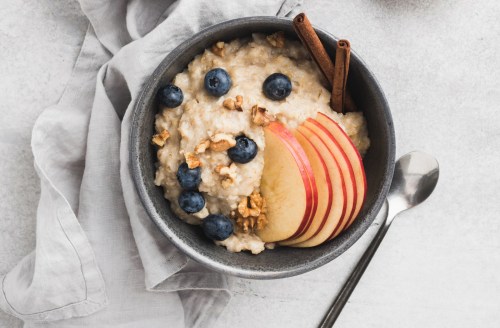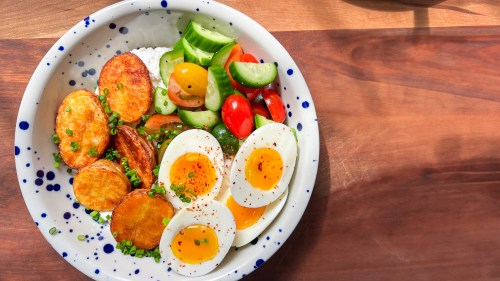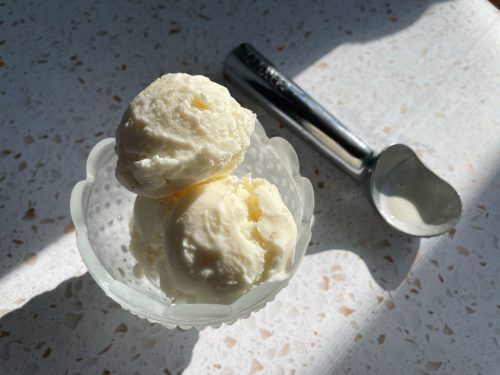A Harvard nutrition expert shares his go-to healthy breakfast
Check out the healthy breakfast foods a Harvard nutrition expert says he enjoys for breakfast every day, and what makes them so good for you.

The importance of breakfast is something we’ve all been preached since elementary school. Back then, it usually took the form of a cereal dotted with rainbow-colored marshmallows, or frozen waffles slathered with butter and syrup. Sure, these meals checked the breakfast box, but looking back, they didn’t really deliver on the protein front. (Or on fiber or healthy fats, for that matter.) Is it any wonder we’re still confused about what to eat int he morning?
Enter Harvard nutrition expert Walter Willett, MD. Dr. Willett has been studying the way food impacts long-term health for 40 years, so he knows a thing or two about healthy breakfast foods. Dr. Willett recently told Business Insider that a typical breakfast for him is made up of steel cut oats, nuts, and yogurt. Talk about a well-balanced breakfast. “It is a low-glycemic kind of carbohydrates that does bring a lot of microfiber and micronutrients, which do appear to have health value,” he explained of his morning meal.
I know—his reasoning comes with a side of some major nutritional mumbo gumbo, so let’s break down exactly what he’s talking about. Low-glycemic foods essentially have a minimal effect on a person’s blood sugar, which will keep both energy and mood levels even—always a great idea at breakfast, when you want to start your day off on the right foot. Oats, nuts, and plain yogurt are all low-glycemic foods. Vegetables, most fruits, and rice are too.
Micronutrients, another ten cent word Dr. Willett mentions, are basically the vitamins and minerals that your body needs to function properly, such as iron and vitamin A. All of the foods that he’s chosen for his go-to breakfast are rich in essential micronutrients, including vitamin E (in almonds and pecans), iron, zinc, and magnesium (in the oats), and calcium (in yogurt).
Speaking of micronutrients, these are the three supplements every woman should consider taking:
Plus, the combo of oats, nuts, and yogurt gives roughly 20 grams of fiber (16.5 grams from the oats, 3.5 from the nuts, using almonds as an example, and none from the yogurt, unless it’s Greek yogurt) and 45 grams of protein (26 grams, 6 grams, and 13 grams respectively). The average adult woman should aim to get 25 grams of fiber and 75 grams of protein a day, so yeah—this breakfast would be a good way to help get there.
Of course, skeptics would point out that Dr. Willett’s breakfast includes carbs, which has become somewhat of a dirty word in an era where keto is a leading eating plan. Carbohydrates are healthy, and in fact, we need them to survive. But to the nutrition expert’s points on micronutrients and the glycemic index, the sources of the carbs matter. After all, sugary cereals and toaster waffles often are full of ’em.
If you’re not into oatmeal, here are more breakfast ideas that are balanced and full of, ahem, micronutrients. And these seven breakfasts are high-fiber.
Sign Up for Our Daily Newsletter
Get all the latest in wellness, trends, food, fitness, beauty, and more delivered right to your inbox.
Got it, you've been added to our email list.










